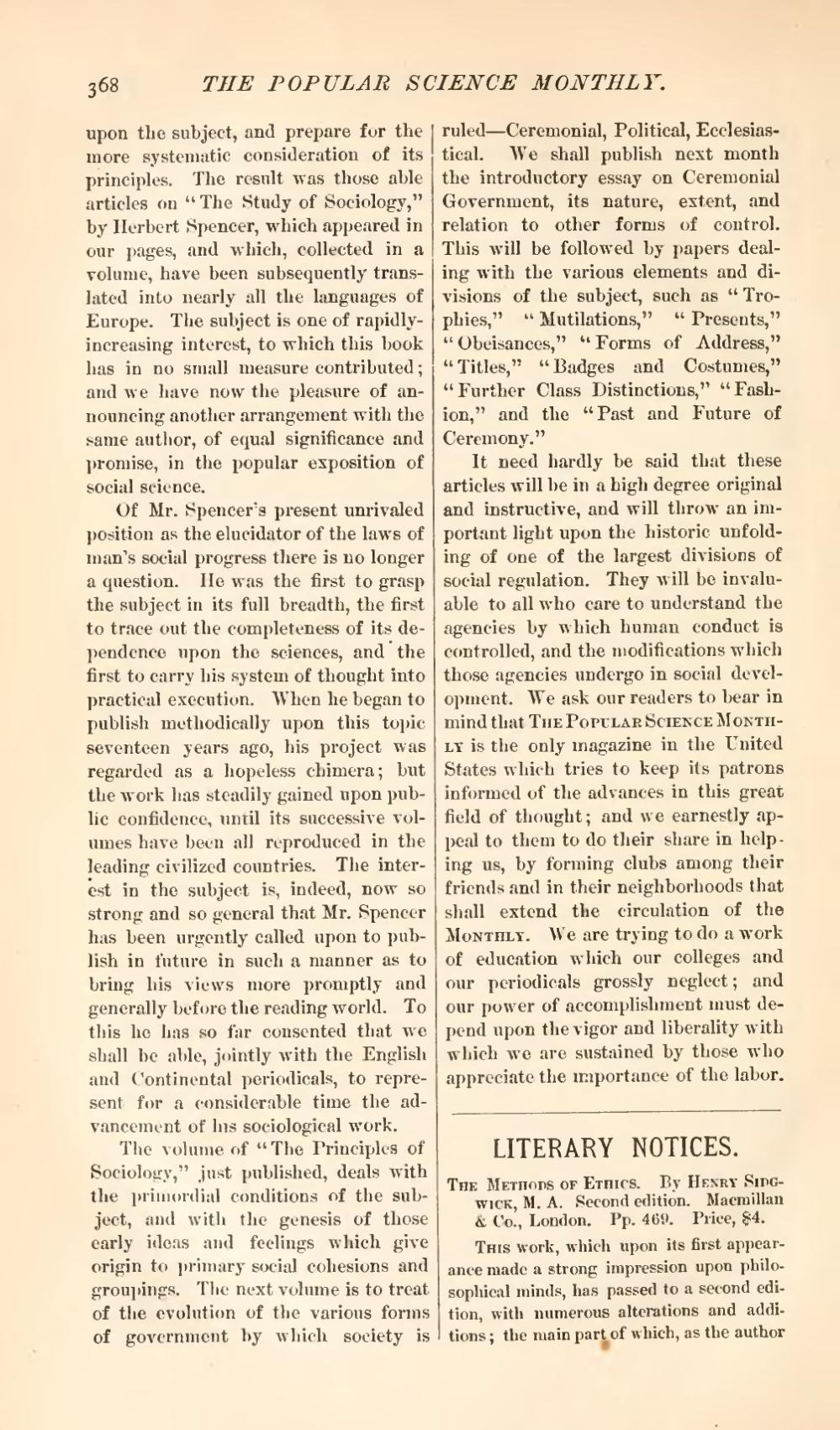upon the subject, and prepare for the more systematic consideration of its principles. The result was those able articles on "The Study of Sociology," by Herbert Spencer, which appeared in our pages, and which, collected in a volume, have been subsequently translated into nearly all the languages of Europe. The subject is one of rapidly-increasing interest, to which this book has in no small measure contributed; and we have now the pleasure of announcing another arrangement with the same author, of equal significance and promise, in the popular exposition of social science.
Of Mr. Spencer's present unrivaled position as the elucidator of the laws of man's social progress there is no longer a question. He was the first to grasp the subject in its full breadth, the first to trace out the completeness of its dependence upon the sciences, and the first to carry his system of thought into practical execution. When he began to publish methodically upon this topic seventeen years ago, his project was regarded as a hopeless chimera; but the work has steadily gained upon public confidence, until its successive volumes have been all reproduced in the leading civilized countries. The interest in the subject is, indeed, now so strong and so general that Mr. Spencer has been urgently called upon to publish in future in such a manner as to bring his views more promptly and generally before the reading world. To this he has so far consented that we shall be able, jointly with the English and Continental periodicals, to represent for a considerable time the advancement of his sociological work.
The volume of "The Principles of Sociology," just published, deals with the primordial conditions of the subject, and with the genesis of those early ideas and feelings which give origin to primary social cohesions and groupings. The next volume is to treat of the evolution of the various forms of government by which society is ruled—Ceremonial, Political, Ecclesiastical. We shall publish next month the introductory essay on Ceremonial Government, its nature, extent, and relation to other forms of control. This will be followed by papers dealing with the various elements and divisions of the subject, such as "Trophies," "Mutilations," "Presents," "Obeisances," "Forms of Address," "Titles," "Badges and Costumes," "Further Class Distinctions," "Fashion," and the "Past and Future of Ceremony."
It need hardly be said that these articles will be in a high degree original and instructive, and will throw an important light upon the historic unfolding of one of the largest divisions of social regulation. They will be invaluable to all who care to understand the agencies by which human conduct is controlled, and the modifications which those agencies undergo in social development. We ask our readers to bear in mind that The Popular Science Monthly is the only magazine in the United States which tries to keep its patrons informed of the advances in this great field of thought; and we earnestly appeal to them to do their share in helping us, by forming clubs among their friends and in their neighborhoods that shall extend the circulation of the Monthly. We are trying to do a work of education which our colleges and our periodicals grossly neglect; and our power of accomplishment must depend upon the vigor and liberality with which we are sustained by those who appreciate the importance of the labor.
The Methods of Ethics. By Henry Sidgwick, M.A. Second edition. Macmillan & Co., London. Pp. 469. Price, $4.
This work, which upon its first appearance made a strong impression upon philosophical minds, has passed to a second edition, with numerous alterations and additions; the main part of which, as the author
